5 People Who Won Oscars For The Wrong Film
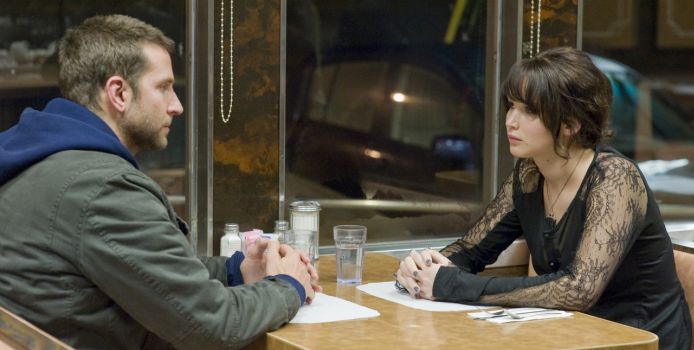
Sam is an English Literature student at the University of…
It’s no surprise that the Oscars often get it wrong. The list of film legends who have never won an Academy Award is pretty damning on the Academy: from Stanley Kubrick, Orson Welles and Alfred Hitchc*ck to Leonardo DiCaprio and Brad Pitt. That in itself is enough to make you question who chooses these awards, and why anyone listens to them. But they still have a certain magic to them, drawing huge audiences, discussions and record-breaking tweets. The fact is that film fans love to talk about why they’re right, why they’re wrong, and who deserves what.
Nothing expresses this more than the Academy’s frequent habit of ignoring an actor or director’s best work, and then giving them an Oscar for a lesser film. Sometimes it’s to atone for years of injustice, sometimes it’s due to weak competition in one year and strong competition in another, and sometimes the Academy just changes their attitude in regards to certain styles and genres. Whatever the reason may be, these are a few of the times that the Academy has given the Oscar to the wrong film.
5. Al Pacino
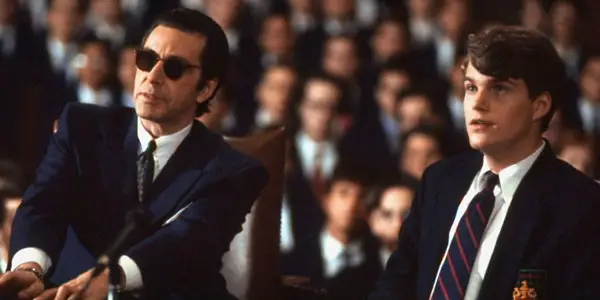
Al Pacino in The Godfather Part II is a masterclass in acting. Michael Corleone’s descent into moral darkness, his reaction to the betrayals of the people closest to him, and the moments where his quiet fury explode into rage are electrifying. In the first Godfather, he was nominated in the Supporting Actor category for his portrayal of the younger Michael, despite being the main character of the film (probably because Marlon Brando was also nominated – and won – for playing his father Vito in the same category). Pacino was so insulted not to be nominated for Best Actor that he boycotted the ceremony, but they were about to subject him to further injustice.
He missed out on Best Actor in Godfather Part II to Art Carney for the long-forgotten Harry and Tonto, while his co-star Robert De Niro won Supporting Actor for playing the young Vito. Admittedly, I haven’t seen Harry and Tonto, so maybe Carney’s portrayal of a widower travelling across America with his cat was genuinely better than Pacino – but he certainly hasn’t left a mark on cinema history in the way Michael Corleone has. Perhaps the Academy was reluctant to give him an award after his boycott, or maybe they only wanted to give Oscars to actors playing Vito Corleone. But it was another 18 years before Pacino got his Oscar, for Scent of a Woman. It’s a good performance, sure, but nowhere near the level of either Godfather. The award felt like an atonement for previous snubs; in this case, too little too late.
4. Danny Boyle
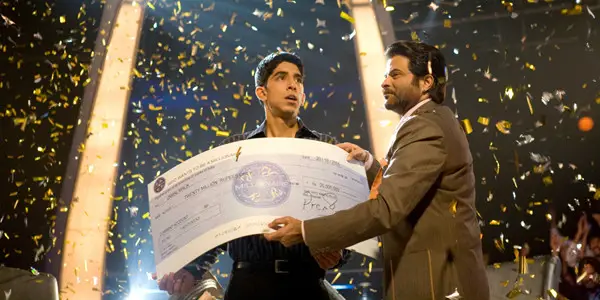
Slumdog Millionaire, a small British film that was originally going to be made direct-to-DVD, came out of nowhere in late 2008. $378m worldwide and 8 Oscars later, Danny Boyle was one of the biggest names in Hollywood. Boyle is one of the best British directors of his generation, even if he is responsible for The Beach. He is able to successfully tackle many genres, including horror (28 Days Later), sci-fi (Sunshine), psychological thriller (Trance) and family drama (the underrated Millions). But he never truly broke through to America until Slumdog, and so it was a great moment to see him recognised with the Best Director Oscar.
However, the best movie he made only got one nomination in 1996 (Best Screenplay), and this is a shameful oversight. I refer, of course, to Trainspotting, which is arguably the greatest film to ever come out of Scotland, and is ranked as the 10th best British film by the BFI. The brilliance of the film comes from Boyle’s vibrant, imaginative direction, which he has never bettered since. Of course, the heroin addict subject matter, explicit nature, and rough Scottish accents of the film meant Trainspotting was always going to be a hard sell for Oscar voters. But then, so was a fantasy game show melodrama full of unknowns set in India.
3. Kate Winslet
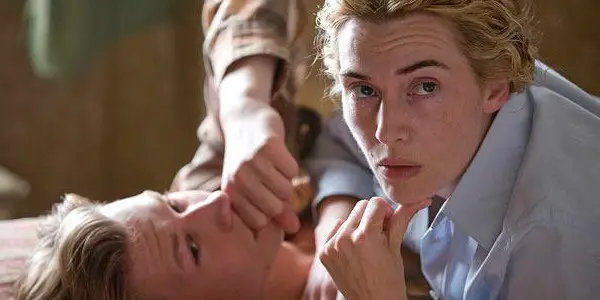
Kate Winslet’s first and (so far) only Oscar came for the Oscar-baiting Holocaust drama The Reader. Her performance as an illiterate former Auschwitz guard is good, but it wasn’t the best of her career. The strange thing is that it wasn’t even her best of the year. 2008 also saw Revolutionary Road, where Winslet, directed by her then-husband Sam Mendes, is simply brilliant as a 1950’s housewife in a troubled marriage. It is arguably her greatest performance. At the Golden Globes, Winslet won Best Actress for Revolutionary Road, and The Reader was ignored. Somehow the positions were reversed at the Oscars: Michael Shannon received a Supporting Actor nod for the same film but Winslet was snubbed.
Perhaps the Oscars objected to nominating the same actress twice in the same category. But why pick The Reader, if you have to pick? The more cynical view would be that this was due to Harvey Weinstein, the movie producer who supposedly has huge influence over Oscar voters. The Weinstein Company distributed the film and campaigned heavily for The Reader, knowing it was unlikely she would get nominated for both. Scott Rudin, who initially produced both films, allegedly left production of The Reader because of this. Of course, Winslet didn’t seem too bothered when she went up to accept her Oscar. But her husband might have been.
2. Jennifer Lawrence
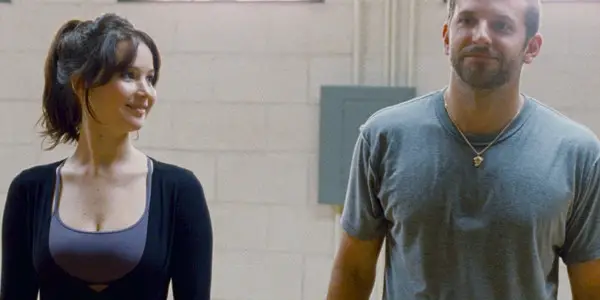
Another film to benefit from the Harvey Weinstein Oscar machine was 2012’s Silver Linings Playbook, which became the first film in 30 years to be nominated in all 4 acting categories. Lawrence’s role as a depressed young widow was one of them, and she capped off the year as a superstar by taking home Best Actress. And that felt like the Oscars appealing to the Jennifer Lawrence hype due to the recent success of The Hunger Games. Though she’s good, there were far more deserving performances that year: Emmanuelle Riva, who won the Bafta that year for Amour, and Quevenzhané Wallis, who was nominated at age 9 for Beasts of the Southern Wild.
Lawrence’s own best performance was the one that announced her to the movie world in 2010, Winter’s Bone. She’s superb as a tough teenage girl searching for her drug-dealing father in the bleak Ozark mountains, providing a powerful emotional core to a gritty, dark thriller. Nominated at just 20, it’s incredible to think it was only one of her first feature film performances. While most people will think of Lawrence as Katniss Everdeen first and foremost, those who have seen Winter’s Bone won’t easily forget Ree Dolly.
1. Martin Scorsese
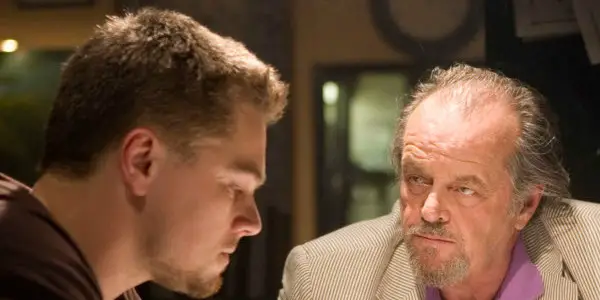
For years, Martin Scorsese was the most infamous never-won-an-Oscar director. It almost seemed like the Academy were determined not to let him win. For Raging Bull, he lost out to Robert Redford for Ordinary People. In the year he made Goodfellas, Kevin Costner got the award for Dances in Wolves. And for his masterpiece Taxi Driver, he wasn’t even nominated. In 1976, when it premiered, John Avildsen won for Rocky, and then went on to make Jean-Claude Van Damme action films and the Karate Kid trilogy. The snubbed Scorsese went on to make classics in every one of the next 3 decades.
Ultimately it was not until 2006, for Boston crime epic The Departed, that Scorsese finally got his Oscar. The Departed is a great film, and Scorsese probably did deserve to win – but is it the best work of his career? Not even close. It would be difficult to even place it in the top 5 of his films. It might also be that 2006 was a weak year, with the only real competition being Babel & The Queen. It seemed that the Academy finally had no excuse to not give him the award. Scorsese received a massive standing ovation when he was announced as the winner. With tongue firmly in cheek, as he went up to accept his award the first words he said were: “Did you double-check the envelope?”
Ultimately, the fun of the Oscars is all about these decisions. Film is completely subjective, and not for a second should you judge any movie award as a be-all end-all marker of artistic merit. No, the Academy Awards are there to encourage discussion and argument (and publicity) about the movies we love and the people who make them happen. So with Richard Linklater, Julianne Moore and JK Simmons among the names who could win their first, overdue Oscars next year, long may the trend of infuriating decisions continue.
What do you think are the strangest Oscar decisions? Do they matter? Share your thoughts in the comments below.
(top image: Silver Linings Playbook – source: The Weinstein Company)
Does content like this matter to you?
Become a Member and support film journalism. Unlock access to all of Film Inquiry`s great articles. Join a community of like-minded readers who are passionate about cinema - get access to our private members Network, give back to independent filmmakers, and more.
Sam is an English Literature student at the University of Sheffield. He likes film, writing, and writing about film. He didn't think Prometheus was that bad.













